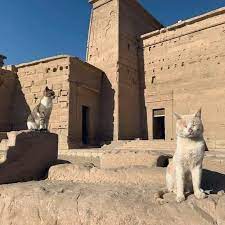In 1204, the events of the Fourth Crusade led to Venice having significant political influence in Constantinople, and therefore the Byzantine Empire. Although the Venetians were driven from Constainople, it still took several decades for the intense competition between the two republics to turn into a war.
There was land in the coastal city of Acre—owned by the Abbey of Saint Sabas (illustration)—that was claimed by both Venice and Genoa. In 1257, a Venetian admiral broke through the Acre harbor chain (strung to prevent unwanted ships) and destroyed several Genoese ships that were harbored there. Genoa had a fortification at Acre, and their crossbowmen fired at the attackers. Venice had siege engines, which they brought to bear, blockading Acre for more than a year.
The Genoese had the support of the Knights Hospitaller in the city, as well as the Byzantine Empire (Michael Paleologos had just driven out the Venetians). Venice meanwhile had the Knights Templar on its side. Both sides hired Muslim mercenaries; these were frequently Turcopoles, "sons of Turks," who were light cavalry often employed by Byzantine states. Genoa made an alliance with Baibars, the sultan of the Egyptian Mamluks, but his promised fleet never appeared. Genoa also approached Michael Paleologos, who was happy to provide support against the Venetians.
Efforts to mediate the conflict by a local lord failed, and a naval battle took place. The Genoese navy of about 50 ships was overrun by the Venetian navy. The Genoese abandoned Acre and retreated to Tyre, a city from which the Venetians had been evicted in 1256.
The War of Saint Sabas (1256 - 1270) annoyed the pope, who feared a Mongol or Muslim attack that would be successful because too many Christian resources were being wasted fighting each other. Pope Gregory X, along with France and Sicily, pressured the two republics to agree to the Peace of Cremona in 1270, although Genoa did not get their part of Acre back until 1288.
The Venetians came out ahead in this war. A generation later, however, Genoa got the upper hand. I'll explain tomorrow.


